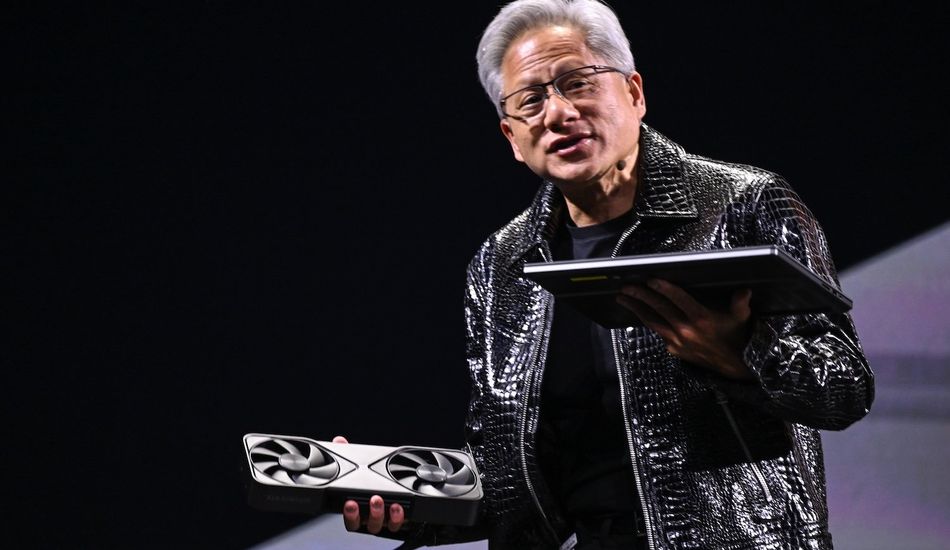
Nvidia's AI Vision: Progress or a Monopoly in Disguise?
Nvidia recently hit a staggering $4 trillion valuation, a figure that's hard to truly grasp. As the company rides this wave of success, CEO Jensen Huang offers a glimpse into what this AI revolution means for all of us. However, it's crucial to look beyond the hype and consider who's really in control.
Essentially, Nvidia provides the essential components for AI. Their advanced GPUs are the driving force behind everything from chatbots to complex AI models. You could say that in this mad dash for AI dominance, Nvidia is the one supplying all the critical tools, making them incredibly influential.
During an interview, Huang was pretty direct about the impact of AI, stating that every job will be affected, and some may even disappear. The big hope is that AI will massively boost productivity, leading to overall societal wealth. But, let's be honest, that disruption could be pretty painful for some.
Huang also touched on a crucial point: the importance of America rebuilding its manufacturing capabilities. This isn't just about politics; it's an economic necessity. He believes that having the skills and passion to create things is vital for economic growth and a stable society, offering fulfilling careers to those without advanced degrees.
One of Huang's most optimistic visions involves AI revolutionizing healthcare. He envisions AI accelerating drug discovery, unraveling the complexities of human biology, and even helping us cure diseases. Imagine AI-powered virtual assistants working alongside researchers and scientists, making breakthroughs we can only dream of today.
While the focus often centers on software, Huang assures us that the technology for physical robots is rapidly advancing. Within a few years, we'll likely see robots that can perceive their surroundings, understand instructions, and act in the real world, which he calls "VLA models."
However, Huang didn't shy away from the potential downsides of AI. He acknowledged that AI models could cause harm. He believes that safety tools are improving constantly. According to him, most AI models already employ other AIs to verify the accuracy of results, and the technology is continuously improving.
Here's the thing: all these transformative promises are intrinsically linked to Nvidia. They produce the chips, they dictate the pace of innovation, and now, with their immense valuation, they possess significant leverage to shape the AI landscape. Tech giants often make grand promises but end up controlling access and dictating the terms. It's a familiar pattern of consolidation, disruption, and control.
While the AI hype machine keeps pushing this idea of inevitability, we need to remember that this is ultimately a story about power. Nvidia is becoming a gatekeeper, influencing what's possible in science, work, and security. In the end, it boils down to who benefits most from this revolution, and whether we have any say in the matter.
Source: Gizmodo